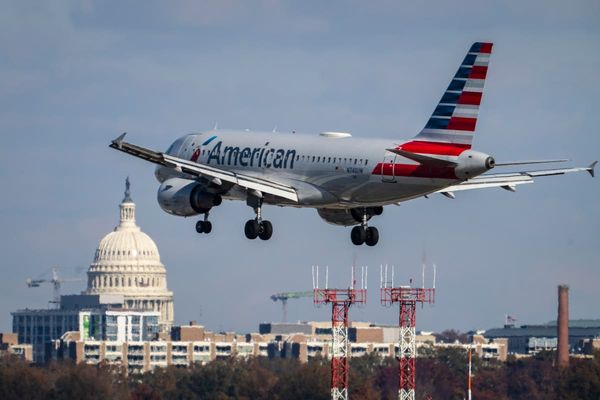
In 1872 Charlotte Ray became the first Black woman to graduate from a law school in America. In 2022 President Joe Biden plans to nominate the first Black woman to serve as an associate justice of the United States Supreme Court.
Right on cue, his decision has been met with howls of outrage from reactionaries. They argue this will be an “affirmative action” appointment in the service of political correctness. They protest that the best candidate should be chosen. All this before knowing the president’s pick.
Their bleats ring hollow. In 233 years there have been 115 Supreme Court justices. All but five have been men. All but three have been white. Six of the 17 chief justices had no judicial experience. Two of the current judges attended high school together. What are the odds? The claim that all were selected on their merits is laughable.
Meanwhile, as the National Football League hosts its annual countdown to Super Bowl Sunday, a Black coach has filed a lawsuit alleging racial discrimination by the NFL and its 32 teams. Brian Flores, who was sacked last month as head coach of the Miami Dolphins after three seasons in the role, contends the league is rife with racism, particularly in hiring Black coaches and executives.
Flores is no novice. He earned four Super Bowl rings while an assistant coach for the New England Patriots. At Miami he compiled back-to-back winning seasons before his sacking. The Dolphins had managed only one winning season in the decade before his arrival.
Flores asserts that the NFL’s professed commitments to diversity, equity and inclusion are a sham. According to him the Rooney Rule — a league policy that requires teams to interview minority candidates for senior positions — is a fig leaf.
Judging by the numbers, it’s hard to disagree. More than 70% of NFL players are Black, but following the recent dismissals of Flores and David Culley by the Houston Texans, there is one Black head coach left. There are seven Black general managers managing football operations, up from one in 2020. There is just one Black team president running an entire organisation.
Most players are Black, yet the league had to make a rule to force teams to interview Black candidates for leadership roles. What does that tell us?
Flores equates the NFL to a plantation: “Its 32 owners — none of whom are Black — profit substantially from the labour of NFL players, 70% of whom are Black. The owners watch the games from atop NFL stadiums in their luxury boxes, while their majority-Black workforce put their bodies on the line every Sunday, taking vicious hits and suffering debilitating injuries to their bodies and their brains while the NFL and its owners reap billions of dollars.”
The ink was barely dry on his lawsuit before league executives rejected it outright. Within hours they issued their response: “The NFL and our clubs are deeply committed to ensuring equitable employment practices and continue to make progress in providing equitable opportunities throughout our organisations. Diversity is core to everything we do, and there are few issues on which our clubs and our internal leadership team spend more time. We will defend against these claims, which are without merit.”
NFL executives must be exceptional readers. Flores’s lawsuit is 58 pages long. The NFL’s bosses were able to digest his assertions, assess them, and dismiss them in less time than it takes to play the Super Bowl.
It probably helps that it’s a familiar playbook for them. In 2016 San Francisco 49ers’ quarterback Colin Kaepernick sparked a firestorm for the simple act of kneeling in protest against police treatment of Black and minority Americans. Kaepernick had previously led his team to Super Bowl XLVII in 2013, losing narrowly to the Baltimore Ravens. In a sport where quarterbacks rule, Kaepernick was among the best. After his stand, however, he was blackballed. Even when teams became desperate for experienced quarterbacks in subsequent seasons due to injuries, team owners refused to hire him. He hasn’t played again.
In the aftermath of Kaepernick’s exclusion, the NFL released another statement: “The National Football League believes in dialogue, understanding and unity. We embrace the role and responsibility of everyone involved with this game to promote meaningful, positive change in our communities. The social justice issues that Colin and other professional athletes have raised deserve our attention and action.” And they have a bridge to sell you.
White male favouritism is not confined to the US. Fifty-five justices have served on Australia’s High Court. Only six have been women. All have been white. In a country that boasts about its multicultural identity, not a single non-white judge has been considered the best candidate.
Australia also loves to laud its First Nations athletes. Cathy Freeman’s gold medal at the Sydney Olympics was a landmark moment. Scott Boland made a dazzling Test debut at the Melbourne Cricket Ground on Boxing Day. Last month Ash Barty broke a 44-year drought of homegrown singles champions to win the Australian Open tennis title. Indigenous players thrive in the Australian Football League.
However, as in America leadership ranks are lily-white. And mostly male. AFL, league, union, cricket, swimming, tennis… It’s the same across the board. This insularity doubtless contributed to the AFL flubbing its own Kaepernick moment when Adam Goodes was hounded out of the game. Goodes was even more accomplished than Kaepernick in their respective codes. A dual Brownlow medallist, dual premiership player, four-time All-Australian, and named to the Indigenous Team of the Century, he played 372 matches for the Sydney Swans. Only eight footballers have appeared in more.
Despite the prevalence and skill of Indigenous AFL players, racism still abounds. Goodes was targeted when he celebrated with an Indigenous dance after he scored a goal. In New Zealand the nation swells with pride at the Māori haka. But in Australia abusive spectators retaliated against Goodes for months, jeering him every chance they got while AFL administrators dithered. Eventually he had enough and left the sport. Who can blame him?
There is no such thing as the best candidate for any job. When it comes to the most coveted posts, network has always trumped know-how. Friends, allies, affiliations and the old school tie still open doors that remain barred to those without connections. And since people like to hire those who look and think like them, the cycle keeps repeating.
Breaking this pattern is hard, but it is essential. Not just because fairness demands it. Research confirms that diverse groups outperform homogenous groups. They generate better ideas, make better decisions, and deliver superior results. This stands to reason. Breadth of experience helps overcome the limitations of groupthink and bias.
February is Black history month in the US. 150 years have passed since Ray was admitted to the bar. It has been 83 years since Jane Bolin became the first Black woman to serve as a judge. Soon another Black woman will make history by reaching the pinnacle of the legal profession. It’s about time.







